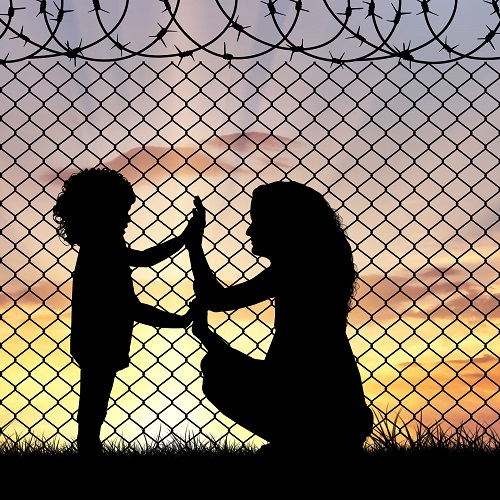29 August 2023
 The number of women imprisoned in Australia has jumped by 64% in the past decade, leaving thousands of children separated from their mothers and causing huge stress to both parties.
The number of women imprisoned in Australia has jumped by 64% in the past decade, leaving thousands of children separated from their mothers and causing huge stress to both parties.
In a bid to ease the strain of separation and maintain the mother-child bond, a new prison parenting program has been developed in close collaboration with women in prison as well as prison staff and key members of the Aboriginal community in South Australia.
The Mothers Matter program, led by University of South Australia midwife and researcher Belinda Lovell, includes direct input from Aboriginal and/or Torres Strait Islander women, who make up 33% of the 3000 female prisoners in Australia.
Lovell has spent the past five years developing, implementing and evaluating the program with women at the Adelaide Women’s Prison, ensuring it meets their needs and aligns with their cultures.
“There are multiple pathways that can lead to women offending,” Lovell says.
“Most of the women have complicated family histories that can include child abuse, sexual abuse, childhood neglect and family violence.
“There is also a high risk that their children may follow the same path. Introducing some positive parenting skills in prison can help them to maintain a strong connection with their children, even while separated.
“For mothers, connection with their children may be their only source of hope and motivation while they are in prison and if we can foster strong relationships between the caregiver and mother, this can encourage successful parenting after women are released from prison.”
The pilot program involved nine mothers in prison – including three Aboriginal women – separated from 22 children in total.
Video clips were created specifically for the program, which included interviews with women previously in prison, an expert in child protection and an Aboriginal Elder.
“These video clips were created to convey knowledge, wisdom, and inspiration from lived experience,” Lovell says.
The program is delivered over eight sessions in two-hour blocks, and available to women on remand as well as those serving lengthy sentences.
Initial feedback has been positive, with women embracing the chance to learn more about parenting and discuss connecting with their children through letters, cards and telephone conversations. The women were encouraged to share information learnt during the program with their family and caregivers of their children.
“Through this parenting program, women can discuss self-care strategies, release guilt, and take steps to connect or re-connect with their children,” Lovell says.
The program was facilitated with the assistance of a parenting educator, a psychologist from the Department for Correctional Services, and an Aboriginal health worker.
Department for Correctional Services (DCS) Director of Strategic Policy, Projects and Partnerships, Jo McFarland, says that holistic interventions are essential for women in prison.
“Recognising the key pathways of women into criminal justice systems, as well as their relationships and primary care giver status, is so important,” McFarland says.
"The Mothers Matter Parenting Program has been very positively received by mothers in custody. Bringing focus to their children helps them to reevaluate their situation and their children become a key motivator for women to turn their lives around.
"DCS has partnered with the DHS Safer Family Services team to assist with co-facilitation of the program, creating a valuable parenting resource for women in prison. This is a service they can also follow up with after being released,” McFarlane says.
Details of the project have been published in the latest issue of Social Sciences.
Notes for editors
“Process Evaluation of a Prison Parenting Program for Women” is co-authored by UniSA researchers Belinda Lovell, Dr Angela Brown, Professor Mary Steen, and Professor Adrian Esterman.
…………………………………………………………………………………………………………………………
Contact for interview: Belinda Lovell E: belinda.lovell@unisa.edu.au
Media contact: Candy Gibson M: 0434 605 142 E: candy.gibson@unisa.edu.au


